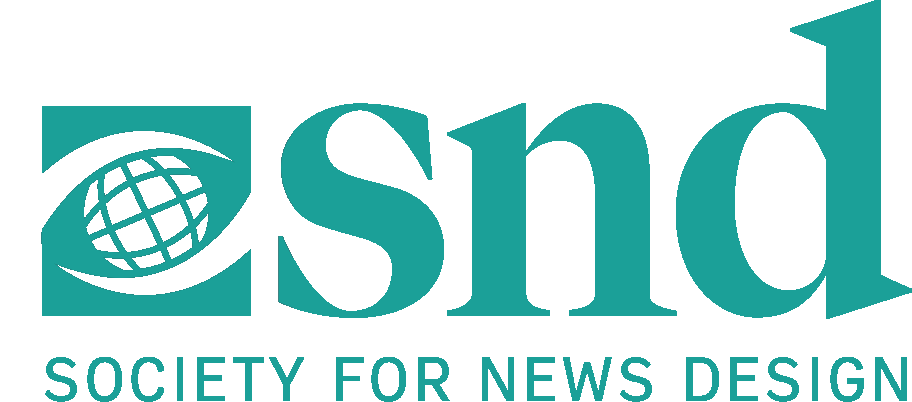We are about mid-way through the SNDMakes Chicago rapid prototyping sprint, and if you have been following along in real-time — on Twitter, Instagram, Facebook — you know that, of any update that we could provide, these would put it best:
So much brain food being shared at #SNDMakes… Start here! https://t.co/nHcnGFYyyj
— Chris Courtney (@designhawg) February 6, 2016
A photo posted by SND (@societyfornewsdesign) on
Ok here's the real photo of Team Mayfair playtesting @bayreporta @yeamal @aidanfeay #SNDMakes-Chi pic.twitter.com/X7PT8wEUj4
— Wear Your Mask (@CherissD) February 6, 2016
https://twitter.com/bayreporta/status/696107177052758016
https://twitter.com/aidanfeay/status/696058742207602688
A photo posted by SND (@societyfornewsdesign) on
Hey #SNDMakes-chi, come join the conversations happening at Team Argyle's writings on the wall. pic.twitter.com/1x4VHk5fea
— Nausheen Husain (@nausheenhusain) February 6, 2016
fascinating share in #sndmakes-chi slack during reportbacks: https://t.co/R4en4YunQ7 pic.twitter.com/kSjaW1o3qb
— miranda mulligan (@jmm) February 7, 2016
I’m at the @CAH office this morning and I got a peak at their styleguide.#SNDMakes #jklol pic.twitter.com/MgCYBHUSWF
— Chris Coyier (@chriscoyier) February 6, 2016
Below find some short project synopses from each team’s stenographer (and, btw, the teams are named after unique-to-Chicago neighborhoods):
****
Team Argyle — Philip Ehrenberg, Nausheen Husain, Joyce Rice, Sisi Wei, Zach Wise
Our idea is how can we take what game companies have used to create better communities and encourage positive behavior, and apply those lessons to other spaces? News organizations have a large number of people participating on their websites, but the environment is often toxic and unwelcoming to members. We’re not trying to fix this entirely—instead we’d like to figure out what tools we might give to communities to self-regulate. We’ve created a real-life message board with a prompt and gave the community tools with which to respond. We’re observing reactions, collecting data, and giving feedback to contributions to shape behavior. We hope to discover new ways to promote efficacy in discussion communities to promote more productive conversations.
****
Team Bronzeville — Ditty Bhandari, James T. Green, Pete Karl II, Ashlyn Sparrow
Mirror, Mirror is a game that helps players confront unknown biases through exposure to intersections of race, gender, socioeconomic status, and ability. Players roll a random anonymous profile and travel through their character’s day, using context clues to eventually figure out what their identity is. The stories that power this game come from real-life experiences of people who match these profiles, such as a teacher in a Florida public school, or a Syrian refugee or a mother in Flint, MI. We want players to get a sense for life at different levels of advantage and empathize with people whose stories and backgrounds differ from their own..
****
Team Mayfair — Mallory Busch, Cherisse Datu, Aidan Feay, John Osborn
Platform is a Creative Commons-licensed card game in which players gather voters by collecting a series of positions on topical issues. It engages a millenial audience (such as the readers of BuzzFeed Politics, Vox, and Fusion) in localized, offline community building and encourages political participation. In doing so, we’re bridging the gap between news consumers and game players and paving the way for more informative gaming.
****
Team Printer’s Row — Chris Coyier, Charlie Hall, Allyson Wakeman, Nicole Zhu
Players are hungry for new experiences, and developers are starved for playtesters — especially in the early stages of design. I Want In presents developers with a community of players who are given the opportunity to identify their interest in a given game project, and ask a developer to be included in a playtest cycle. Developers can select who they’re letting into their tests, and can reward the best playtesters with badges and other tokens – including retail game codes – to raise their profile in the community making them more likely to be included in other projects.
****
Team Pullman — Michael Block, Chris Courtney, Eunice Lee, Jackie Roche
One of the biggest problems for indie developers is that they have to do their own PR and marketing, but cold-pitching to game journalists is a pain point. Outpost creates a community that helps developers find each other, make referrals to journalists, and see what types of articles are getting published all in one place. We’re initially focused on socially conscious game developers.
****
Team Roger’s Park — Sean Bender, Matt Dennewitz, Cindy Miller, Jenny Rowley, Jess Soberman
We are building a game recommendation engine that takes a choose-your-own adventure approach to help non-gamers who express an inability to navigate current discovery options, begin playing without feeling overwhelmed, frustrated, or alienated. By increasing the approachability of gaming through a tool designed for these beginners, we meet this need, while increasing the customer base for game developers.
****
Team Sauganash — Chris Ballard, Greicy Mella, Ryan Nagle, Emily Withrow
We’re prototyping an activity that aims to solicit qualitative and emotional feedback for game developers that they can act on. Our premise is that people have a hard time articulating feedback. They say, “Your game sucks” or “This is boring” or “This game is too hard.” It’s qualitative feedback, but it’s not immediately actionable. We’re building a means for game developers to facilitate a conversation with their users about a feeling that may be hard for them to articulate without a structured conversation. Since actionable-feedback is hard to get when you ask directly about a user’s feelings, having a way to guide the conversation so that users can articulate why they feel the way they do can help inform development of future games and keep you from repeating costly mistakes.
TONIGHT! We will be live on Periscope feeds tonight if you would like to tune in, or feel free to just catch our event recap next week. We are aware that the presentations are scheduled during the time most people will be watching the Super Bowl tonight so we aim to be done by the half-time show.
ICYMI, find the list of SNDMakes-Chi makers prototyping for games media and gamers this weekend and find more about our inaugural SNDMakes Invitational. SNDMakes-Chi is our fifth SNDMakes rapid prototyping event with previous ones in Indianapolis, Boston, D.C. and most recently in Austin.
Thank you! Chicago event partner, hosts and funders:
We are currently working out of Chicago’s Bucktown neighborhood at the Cards Against Humanity amazing office space. We had an amazing kick-off, social hour on Friday night at the Pitchfork Media offices. For this event, we found an excellent event-partnership with the amazing Cards Against Humanity team, and could not have pulled this event together without our amazing Chicago-event hosts: Codepen, Medill School and Northwestern U. Knight Lab, and Pitchfork Media.
We are grateful for the ongoing SNDMakes program support from Knight Foundation and our scholarship funders: Dow Jones News Fund, Scripps Howard Foundation, and Ethics and Excellence in Journalism Foundation. The SNDMakes community would not exist without their support.
Interested in becoming a future SNDMakes event partner or event host? Our partners are exactly as the word implies, they help to design the event as well as provide space, some materials, production and co-communication support. Our event hosts provide the funds necessary for production support and much more. For example, past event hosts have helped to provide the event’s five meals, snacks and beverages, evening team-building activities, materials and technology. We’d love for more to get involved. Please contact us at sndmakes [at] gmail for more information.
Contact us! About SNDMakes events and team:
The Society’s SNDMakes events are about community, not competition. SNDMakes events are not “hackathons,” though we do produce workable prototypes in less than three days. Read our FAQs or check out some great posts from our makers such as Codepen founder Chris Coyier, Upstatement’s Mike Swartz, TheSkimm’s Dheerja Kaur, and plenty on the Vox Product team blog.
Contact us:
Find us out in the wild and follow along: #SNDMakes, Instagram, Facebook. Send us an email at sndmakes [at] gmail, or directly to:
- Ramla Mahmood, Designer at Vox Media. SND board member and SNDMakes co-director.
- Miranda Mulligan, Digital specialist, news design veteran, SND board member and SNDMakes co-director.
- Adam Schweigert, Product at Institute for Nonprofit. SNDMakes technology manager.
- Kyle Ellis, Director of Strategic Programs, Society For News Design.
- Stephen Komives, Executive Director, Society For News Design.
For news about future SNDMakes and other events, follow SND on Twitter or Facebook and consider supporting programs like this one by becoming a member.

